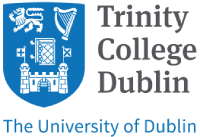PhD Proposal Description:
Diffuse water pollution from agricultural sources in the form of excessive nutrient run-off and drainage discharge is a persistent global contamination source of water quality in rural and agricultural catchment streams and a growing challenge in farming systems. Numerous studies have reviewed the effectiveness of vegetative buffer strips (VBSs) in retaining nutrients from runoff and overland flow. Moreover, VBSs separate agricultural land management activities from water courses by dispersing runoff through thick vegetation and root networks. The microbial constituents of plants, such as arbuscular mycorrhizal fungi (AMF), have been shown to improve plant growth, nutrient transformation, and accumulation, and have great potential to improve phosphorous tolerance and phytoremediation. This PhD project will focus on the (1) identification of native (Irish) nutrient accumulator (VBS) plant species in agricultural settings and their functional characteristics, (2) identify and characterize associated AMF and/or other microbial constituents with selected plants, and (3) assess nutrient accumulating capabilities of plants with native and/or inoculated AMF. Results from this study will contribute to the aim of the NuReCycle project by establishing a sustainable way that farmers can myco-phytoremediate agricultural soils, and in turn, use these plants at the end of a season as a nutrient sorbent biochar/natural overwintering green manure.
NuReCycle is an interdisciplinary project that explores factors driving diffuse water pollution from agricultural sources in Ireland and seeks to develop integrated nutrient control, recovery, and recycling systems. The project is generously funded by a Kinsella Challenge-based E3 Multi-disciplinary Project Award. For more information see Kinsella Challenge-Based E3 Projects and PhD Proposals - E3 - Engineering, Environment and Emerging Technologies - Trinity College Dublin (tcd.ie)
Application Web Page:
Apply - E3 - Engineering, Environment and Emerging Technologies - Trinity College Dublin (tcd.ie)
Enquiries: Enquiries should be made to; Dr Carla Harper [Email Address Removed]
Applications and candidate profile:
Applications should be submitted within a single PDF document that includes a CV with educational background, transcripts of degree results, list of publications and conference presentations; a short (1–2 page) letter of motivation and; contact details for 2 referees. The motivation letter should clearly state how the applicant’s research interests and skills relate to the research project outlined above. Applications will not be considered complete until referees have submitted their references. If the successful candidate does not have English as a first language, they will also be required to submit evidence of English language competence at this stage.
Trinity College Dublin is committed to policies, procedures and practices which do not discriminate on grounds such as gender, civil status, family status, age, disability, race, religious belief, sexual orientation or membership of the travelling community. On that basis we encourage and welcome talented people from all backgrounds to join our staff and student body. Trinity’s Diversity Statement can be viewed in full at
https://www.tcd.ie/diversity-inclusion/diversity-statement
We are looking for applicants with the following qualifications:
Essential:
• A first-class (or equivalent) undergraduate degree in microbiology, or biotechnology, or another discipline directly relevant to the topic
• Excellent communicative (written and oral) competence in English
• Excellent research, protocol design, and organisational skills
• Ability to work and drive to field locations (ability to drive in Ireland, and/or complete license exam by start of PhD position)
• Be a pro-active, self-directed individual and able to work alone as well as part of a team in a collaborative, structured environment
Desirable:
• A Master’s degree (completed or in progress) in microbiology or molecular microbiology, or related discipline directly relevant to the topic
• Demonstrable experience of using sequencing technologies and experience in molecular biology
• Demonstrable experience of using software for bioinformatics analysis of bacterial sequences (genes, genomes, transposons, etc)
· Demonstrable experience of performing cell culture and toxicity assays
• Demonstrable experience of performing statistical analysis (use of Excel, GraphPad, etc)
• Familiarity with techniques such as flow cytometry, imaging, etc
• Evidence of publication (or in press) in international peer-reviewed journals
• Willingness to integrate the activities of the Department of Microbiology

 Continue with Facebook
Continue with Facebook

